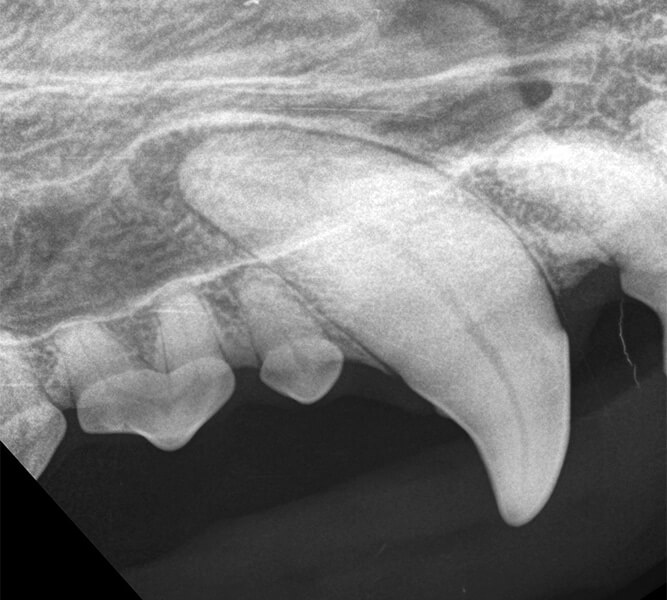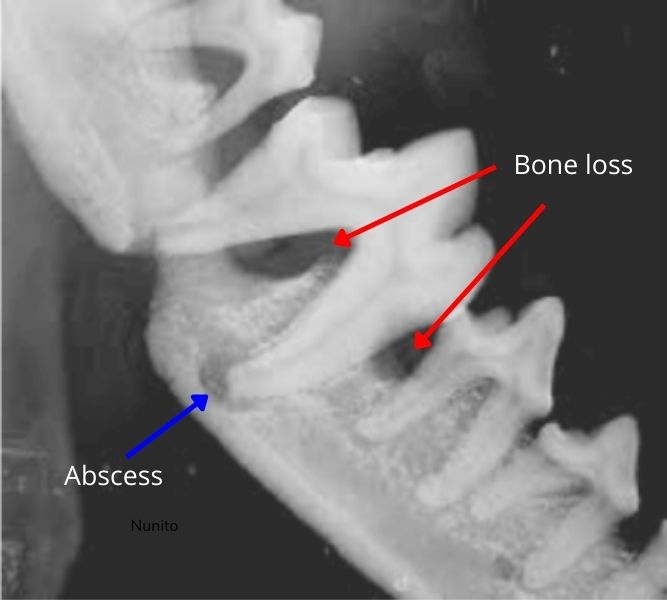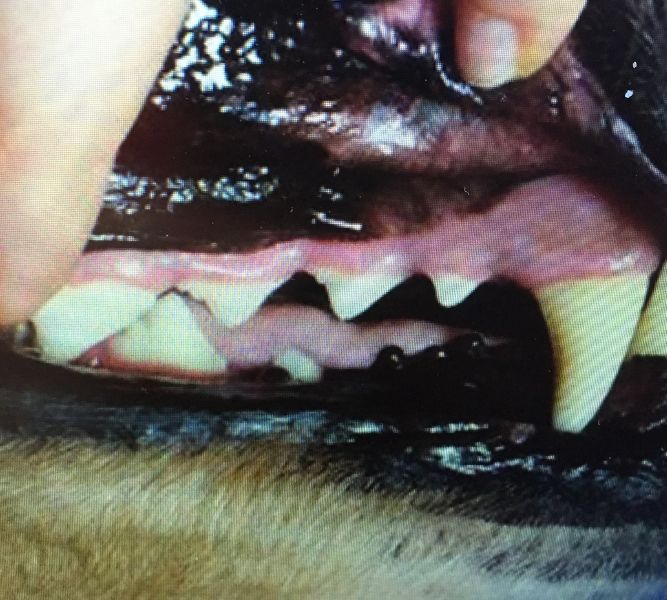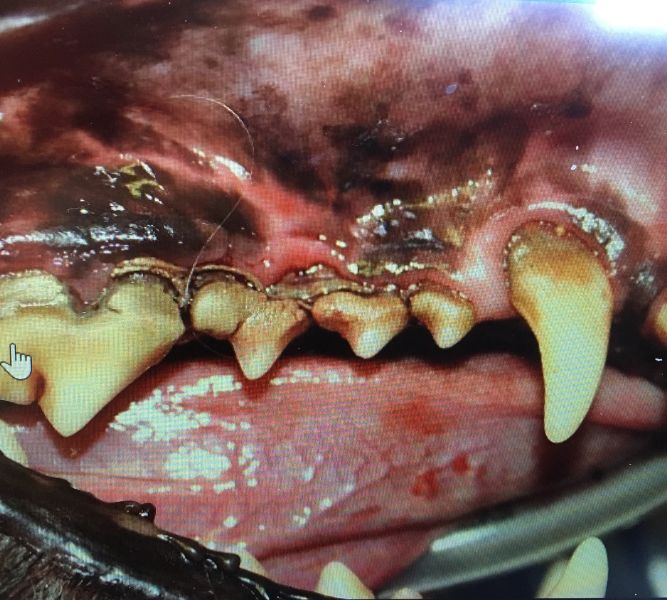Services
Pet Dentistry
Veterinary dentistry is about more than just keeping your pet’s teeth clean and smelling fresh. Many of our pets suffer silently from oral pain and systemic infection caused by periodontal disease, tooth fractures, tooth resorption, and a variety of other dental problems. Our goal is to assist you in identifying, stopping, and preventing your pet’s pain and systemic adverse effects from these diseases.
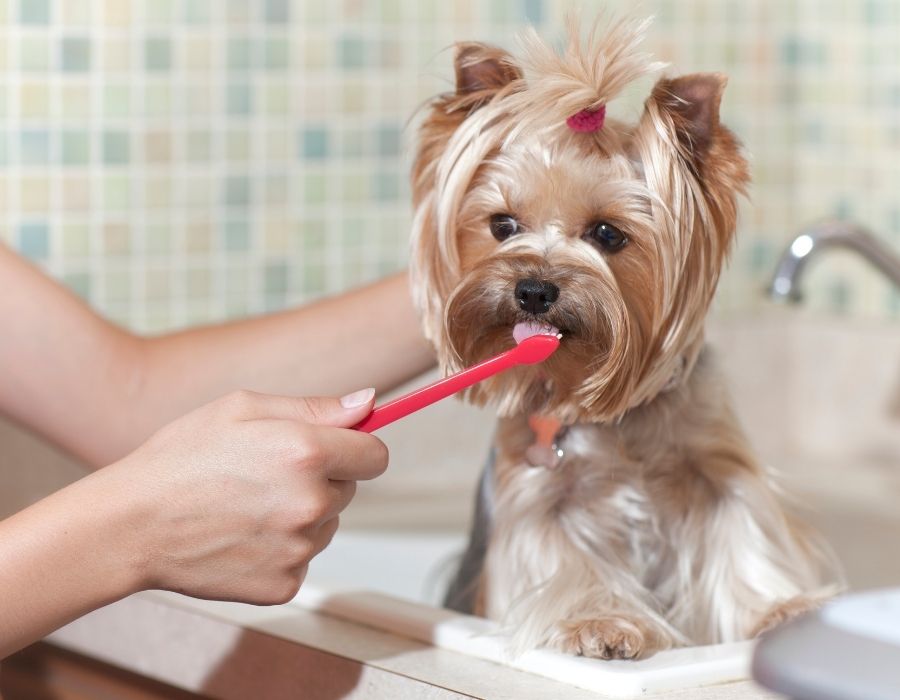
Why do I have to worry about my pet’s teeth?
Dental disease is one of the most common problems that we see in both dogs and cats. The majority of our pets will have some degree of dental disease by 3 years of age. Untreated, dental disease can cause chronic inflammation and pain and will become progressively worse as your pet ages. It can lead to dental abscesses and ongoing infections, which can cause damage to organs such as the heart and kidneys. Even with significant dental pain, most dogs and cats do not show any symptoms and will continue to eat and behave normally.
Why does my pet have to go under anesthetic to have their teeth cleaned?
To be effective, cleaning of the teeth must extend below the gum line and into the spaces between the teeth. Anesthesia allows all accessible surfaces of the teeth to be cleaned well. It also allows further investigation of underlying dental problems with tools such as dental x-rays. Attempting to clean the teeth without anesthesia is very stressful for most pets and can lead to mouth or jaw trauma. Imagine being held down by strangers and having sharp instruments poking you in the mouth. Sounds terrifying! Anesthesia makes dental evaluation and treatment much safer and less stressful for your pet.
I am worried about my pet going under anesthesia. Is it safe?
Anesthesia is much safer than many owners think. Before their procedure, blood work will be run on your pet to check liver and kidney function and to screen for any underlying abnormalities that could affect their anesthesia. Other tests, such as chest x-rays, may be recommended depending on your pet’s age, physical exam, and medical history. A registered veterinary technician monitors your pet continuously during their anesthesia and alerts your veterinarian to any changes. During your pet’s anesthetic, we continuously monitor their vital signs, including blood pressure, heart rate, and oxygen saturation so that we know immediately if there are any changes.
What happens during my pet’s oral hygiene procedure?
Once your pet is under anesthesia, they will have a full examination of their mouth, looking for tooth fractures, masses and other abnormalities. Pockets around the teeth are measured and recorded. Then, dental x-rays are taken of all of the teeth. The teeth are cleaned with hand and ultrasonic scalers and polished. Your veterinarian will perform the oral exam and look at the x-rays and measurements to determine if there are any diseased, fractured, or infected teeth. A treatment plan will then be made based on this information.
Why does my pet need dental x rays?
Dental x-rays evaluate the teeth below the gum line. They allow your veterinarian to diagnose early dental problems and to detect dental disease that is not visible on an oral exam. In one study, even in pets with normal appearing teeth, 30-40% had significant dental disease when dental x-rays were done. Below are some images of dental X-rays to show normal vs. abnormal teeth.
Normal Teeth
Abnormal Teeth
What happens if my pet has a fractured or infected tooth?
Your veterinarian may find one or more fractured or diseased teeth during their evaluation. In many cases, the tooth will have to be surgically extracted. As dogs and cats are carnivores, their teeth are designed to withstand a lot of force. Their tooth roots are long, and many teeth have more than one root. In many cases, the tooth has to be split into sections with a dental drill before removal. By extracting diseased teeth, we can prevent the neighboring teeth from becoming affected over time. We also eliminate oral pain and infection your pet may be experiencing. Once the teeth are extracted, the gum is typically sutured closed over the site. The sutures will fall out on their own in about 2 weeks.
Normal Teeth
Severe Dental Disease
What can I do to prevent dental disease at home?
Brushing your pet’s teeth every day can greatly improve their dental health. If tooth brushing does not work for you or your pet, there are dental products that can help to keep your pet’s teeth healthy. Dental pet food diets as well as some dental chews and other products can also improve your pet’s dental health. Look for products that are approved by the Veterinary Oral Health Council (VOHC) -there should be a symbol on the packaging. These products are proven to reduce plaque and tartar accumulation. Avoid hard chews, bones, and antlers as these products can cause tooth fractures.

